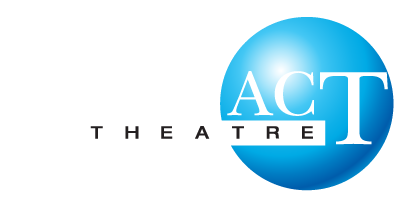Still, There Is Hope
Reflecting on SPLASH HATCH ON THE E GOING DOWN with Kia Corthron
Playwright Kia Corthron wrote SPLASH HATCH ON THE E GOING DOWN in the mid-1990s – the play received its world premiere in 1997. SPLASH HATCH… tackles many current topics and issues, wrapping them up in a very human story. We asked Kia a few questions to help explore the world of her play — and her writing:

Your characters (especially Thyme) often speak uninterrupted at length and switch topics on a dime. How did you develop the vernacular and style of your characters’ dialogue?
I don’t know how much I “developed” their speech. I write characters’ voices as I hear them in my head: Thyme, for example, is an especially inquisitive and energetic teenager.
Having said that, I do deliberately “play” with dialogue: the rhythms, word choices, the words I opt to leave out. The result is a heightened rather than naturalistic language. An unexpected word or phrase or syllable—something almost natural but not quite—will hopefully surprise the audience, causing them to prick up their ears and become an active participant in the theatrical experience.
What was the genesis for this play?
When I wrote the play back in the mid-’90s, I’d been thinking a lot about environmental racism, terminology which has since been honed to the more universal and accurate “environmental justice.” It’s the phenomenon of environmental hazards intentionally being placed in neighborhoods of poor folks, usually people of color: waste treatment plants for the purpose of serving half of Manhattan situated in Harlem; nuclear weapon testing sites positioned near Indigenous American pueblos.
I wrote the first draft of the play in four weeks at my very first artist residency (I’ve attended many since): Hedgebrook, a retreat for women writers, on Whidbey Island which is north of Seattle. Spending that month in such idyllic surroundings—our cottages in the forest with the Puget Sound beach just a half-hour stroll away—was incredibly inspiring. Step outside my door and there were Douglas firs and red cedars and hummingbirds and rabbits with eagles flying overhead in the endless sky, and I was overwhelmingly grateful for this bit of paradise while pondering on everything we have to lose. Perhaps it would seem counterintuitive, given that my play is set in the heart of the city, but we live on one earth: all connected.
Are there aspects of yourself that are reflected in the play? Particularly Thyme’s boundless collection of facts, but also the sincerity and general love the characters seem to have for one another.
Yes, all that. There is definitely plenty of me in Thyme—her utter curiosity, her penchant for research. Also I do like to write about tenderness between people which, if built into the story correctly, never requires the word “love”: it’s obvious.
Who are your inspirations? Whose work were you drawn to – when writing this play, or even now?
Because I live in New York City (Harlem, like Thyme), I’m fortunate to have access to hundreds of plays (new and old) and I read a lot of novels (new and old). I am perpetually invigorated by good writing in both disciplines. But, with regard to my own work, a better question might be where am I inspired. My writing has always been sparked by social injustice, and I am often informed via progressive journalism. My favorite news source is Democracy Now! but there are others: The Intercept, The Nation, podcasts, books. For SPLASH HATCH…, I was reading a book while at Hedgebrook called The End of Nature, some passages of which still haunt me to this day. It was the debut of Bill McKibben, who has since become a major figure in environmental activism.
One of the most striking things about mounting this play in 2023 is how contemporary all the issues still feel. What are your thoughts on SPLASH HATCH…’s legacy after nearly 30 years?
Sometimes it feels very Whac-A-Mole. Around the time I wrote the play came the very first U.N. COP (the international “Conference of Parties” climate change conference) which was certainly hopeful—except, over the years, the annual event has been increasingly dominated by fossil fuel interests. BP, Chevron, ExxonMobil, Shell and TotalEnergies spend lavishly to pump up their green image on their websites—their embrace of emissions reductions and clean energy, how they are part of the “solution”—even as they escalate oil production. Biden’s Inflation Reduction Act has created on the order of 170,000 new clean energy jobs while the President has approved the ConocoPhillips Willow oil project in Alaska as well as various liquefied natural gas facilities.

Still, there is hope! Thyme’s youthful passion is viral in the real world. Think of Sweden’s astonishing teenage (now twenty) activist Greta Thunberg. Think of the U.N.’s Youth Climate Summit. Think of the young people (the youngest being five years old) who, this summer, won their legal case in Montana, the judge ruling that they have a constitutional right to a healthful environment and therefore the state must consider potential climate damage when approving all future projects. For those who would despondently chalk all this up to a drop in the bucket, I love to quote Margaret Mead: “Never doubt that a small group of thoughtful, committed citizens can change the world. Indeed, it is the only thing that ever has.”
SPLASH HATCH ON THE E GOING DOWN runs September 20 – October 15, 2023 at Next Act Theatre. For tickets, click here or call (414) 278-0765.
